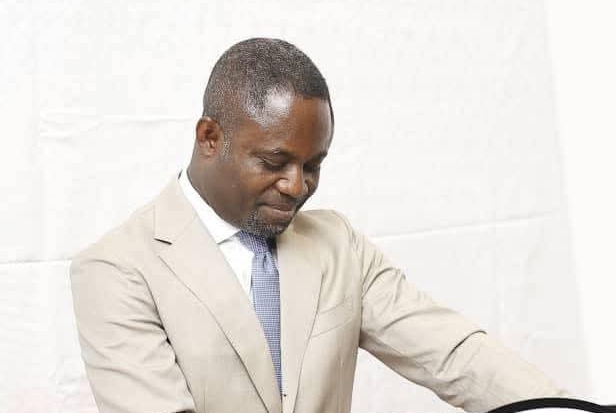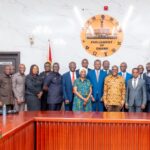Ghana’s healthcare system is in crisis, held hostage by an escalating strike action by the Ghana Registered Nurses and Midwives Association (GRNMA). Hospitals across the nation are reporting deserted wards and overwhelmed skeleton staff, leaving countless patients in peril and highlighting a deeply entrenched struggle between healthcare workers and the government.
The current upheaval is rooted firmly in the government’s failure to implement the 2024 Collective Bargaining Agreement (CBA), an accord signed a year ago outlining crucial terms for nurses and midwives. This agreement addresses contentious issues such as:
Salaries and allowances: Nurses are protesting delayed payments of agreed-upon allowances and what they perceive as inadequate remuneration.
Deplorable working conditions: Concerns about insufficient accommodation and an unbearable workload are also central to their grievances.
Delayed postings: The GRNMA has also pointed to the prolonged delay in the official posting of new nurses and midwives as a significant factor.
The GRNMA asserts that despite reaching a legally binding agreement, the Ministry of Health and the Fair Wages and Salaries Commission (FWSC) have inexplicably failed to secure the necessary budget provisions for the agreed-upon terms in the upcoming 2025 budget.
The Nurses’ Unwavering Stance
The GRNMA’s position is resolute: they will not return to work until the 2024 Collective Agreement is fully implemented.
”We have followed due process, and we have a legitimate expectation for this agreement to be honored,” a GRNMA spokesperson stated, echoing the frustration of thousands of healthcare professionals. They view any attempts by the government to renegotiate or postpone the agreement’s implementation to 2026 as an unacceptable betrayal.
The association has also challenged the National Labour Commission’s (NLC) declaration of their strike as illegal, arguing they have yet to be officially served with any injunction notices. They express deep skepticism about government-initiated dialogues, fearing these are merely tactics to serve them with injunctions rather than genuinely resolve the underlying issues.
”Regardless of who occupies the seat of government, the ’employer’ remains the same, and agreements reached must be binding,” the GRNMA insists, issuing a stark warning that the government should be held accountable for any lives lost due to the ongoing industrial action.
*Government Cites Budgetary Woes*
The government, primarily through the Ministry of Health, acknowledges the nurses’ grievances but attributes its inability to meet the demands to severe budgetary constraints.
Their proposed solution? Deferring the implementation of the conditions of service to 2026, a proposition unequivocally rejected by the GRNMA.
The Ministry has repeatedly appealed to the nurses to return to work while negotiations continue, emphasizing the devastating impact of the strike on an already fragile public healthcare system.
The NLC, in a bid to restore order, has declared the strike illegal and secured an interlocutory injunction, directing the GRNMA to return to duty and resume discussions with the FWSC. Despite the legal actions, the Ministry of Health maintains its commitment to dialogue and compromise, expressing openness to any proposals the GRNMA may present. The Ghana Health Service (GHS) has also joined the chorus of appeals, urging nurses to consider the plight of patients and return to the negotiation table.
*A Path to Healing: Saving Lives and Restoring Trust*
The consequences of this impasse are dire. Hospitals are reporting widespread disruptions, with many struggling to provide even basic services. Patients, including those in critical condition, are being turned away, their health deteriorating with each passing day. The specter of increased mortality and morbidity, particularly among vulnerable populations like pregnant women, newborns, and emergency cases, looms large.
To avert a deepening catastrophe and save lives, both the GRNMA and the government must prioritize the well-being of Ghanaian citizens:
*What the Government Must Do:*
*Prioritize the 2024 CBA*: Beyond rhetoric, the government must demonstrate a concrete commitment to honoring the signed agreement. This means exploring immediate interim solutions, such as addressing unpaid allowances, and presenting a credible, time-bound plan for phased implementation. Revising the 2025 budget to allocate funds or seeking emergency supplementary budgets for the most critical aspects of the agreement should be top priorities.
*Engage in Good Faith Negotiations*: Legal injunctions alone will not resolve this crisis. The government must engage in genuine, respectful, and solution-oriented dialogue, perhaps by inviting an independent, respected mediator to bridge the divide. Intimidation tactics must cease.
*Prioritize Healthcare Funding:* In the long term, sustainable solutions require adequate funding for the healthcare sector. This ensures competitive remuneration and favorable working conditions, preventing future strikes and stemming the alarming exodus of Ghanaian healthcare professionals.
*What the Nurses (GRNMA) Should Do:*
Return to the Negotiation Table with an Open Mind: While standing firm on their demands, the GRNMA should re-engage in dialogue, especially if the government presents a clear and time-bound commitment to address their grievances.
*Consider the Immediate Impact on Lives:* Balancing their industrial action with the immediate needs of critically ill patients is paramount. This could involve maintaining essential emergency and critical care services during the strike to mitigate the most severe impacts on lives.
*Be Open to a Phased Implementation Plan*: If the government demonstrates genuine commitment and provides clear timelines and accountability mechanisms, the GRNMA could consider a mutually agreed-upon phased implementation plan for the CBA.
The health of a nation rests on the shoulders of its healthcare workers. The current stalemate in Ghana is a stark reminder that neglecting the welfare of these vital professionals has devastating consequences for the entire population.
A swift, amicable resolution, built on mutual respect and a shared commitment to public health, is not just desirable – it is imperative to prevent further loss of life and restore stability to Ghana’s beleaguered healthcare system.
Written by Raymond Ablorh
Policy, Strategy & Communication





